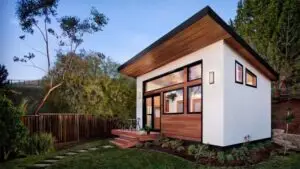When planning a home addition, understanding building codes and permits is critical. These regulations are designed to ensure that construction projects are safe and compliant with local laws. Failing to follow the necessary guidelines can result in fines, delays, or even having to redo work. It’s essential to be aware of your responsibilities before starting the project.
Building codes govern aspects like structural integrity, fire safety, and energy efficiency. These codes vary by location and are updated regularly to reflect new safety standards. They cover everything from the foundation and framing to electrical systems and plumbing. Ensuring your contractor is familiar with these codes is crucial for a successful project.
Permits are another essential part of the process. Most home additions require multiple permits before construction can begin. The type of permits needed depends on the scope of the project. For example, adding a new room might require electrical, plumbing, and general building permits. These permits ensure that the work complies with local regulations and is safe for both the workers and the homeowners.
Securing permits can take time, so it’s important to factor this into your project timeline. It’s also helpful to understand the different inspections required throughout the process. Inspections are conducted at various stages, such as after the foundation is laid or once electrical systems are installed. Passing these inspections is necessary to move forward with construction.
Working with an experienced contractor simplifies the permit process. A good contractor will handle the paperwork, ensuring that all necessary permits are obtained before construction starts. They will also coordinate inspections and ensure that everything is up to code. This saves you time and hassle, allowing you to focus on other aspects of the project.
Skipping the permit process can lead to serious consequences. Unpermitted work may not be covered by your homeowner’s insurance, leaving you liable for damages or accidents. Additionally, if you decide to sell your home in the future, any unpermitted additions could complicate the sale. Buyers are often wary of purchasing homes with unpermitted work because of the potential risks involved.
Permits also protect the value of your home. A properly permitted addition will pass inspections and meet all safety requirements, giving future buyers confidence in the quality of the work. This can also increase your home’s resale value. On the other hand, work done without permits can result in legal issues that decrease property value.
Navigating building codes and permits may seem overwhelming, but it’s an essential part of any home addition project. Understanding the requirements ensures that your project runs smoothly and is completed safely. Investing time in securing permits upfront can save you from costly problems down the road.
A knowledgeable contractor is your best resource for managing this process. They will make sure that everything complies with local regulations and that your project is completed to the highest standards. By staying informed and working with professionals, you can ensure that your home addition is safe, legal, and adds value to your property.






